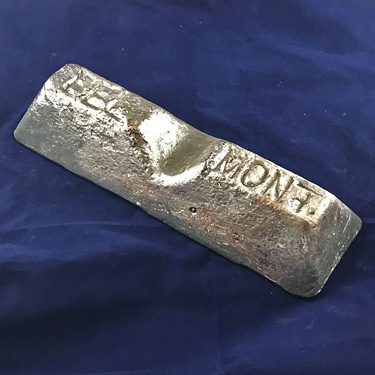-
Scam Alert. Members are reminded to NOT send money to buy anything. Don't buy things remote and have it shipped - go get it yourself, pay in person, and take your equipment with you. Scammers have burned people on this forum. Urgency, secrecy, excuses, selling for friend, newish members, FUD, are RED FLAGS. A video conference call is not adequate assurance. Face to face interactions are required. Please report suspicions to the forum admins. Stay Safe - anyone can get scammed.
-
Several Regions have held meetups already, but others are being planned or are evaluating the interest. The Calgary Area Meetup is set for Saturday July 12th at 10am. The signup thread is here! Arbutus has also explored interest in a Fraser Valley meetup but it seems members either missed his thread or had other plans. Let him know if you are interested in a meetup later in the year by posting here! Slowpoke is trying to pull together an Ottawa area meetup later this summer. No date has been selected yet, so let him know if you are interested here! We are not aware of any other meetups being planned this year. If you are interested in doing something in your area, let everyone know and make it happen! Meetups are a great way to make new machining friends and get hands on help in your area. Don’t be shy, sign up and come, or plan your own meetup!
You are using an out of date browser. It may not display this or other websites correctly.
You should upgrade or use an alternative browser.
You should upgrade or use an alternative browser.
CA-ALL Red brass shot, nuggets, ingots ?
- Thread starter DaveK
- Start date
Canada Wide
- Type
- Supplies
I am looking for leaded red brass casting material. Any leads on a Canadian (ideally western Canada) source ? Small quantity, maybe 10 or 15 pounds.
Thanks for any ideas,
Dave
Aren't bullet casings red brass? Scrap casings are pretty easy to get a hold of
Aren't bullet casings red brass?
Yellow brass as far as I know.
I don't think shell casings are leaded. So far the scrap I've been melting are not easily machined. I could add lead, and may try that, but am looking for a supplier of known-alloy (85-5-5-5) brass.Aren't bullet casings red brass? Scrap casings are pretty easy to get a hold of
Thanks for the reply,
Dave
I am looking for casting nuggets/ingots not rod/hex/tube/flat-bar. I actually called those folks, the gentleman I spoke with had no understanding of casting material. Do you have a source for nuggets or ingots ? Like this but in Canada :

Brass 85/5/5/5 UNS C83600 - Belmont Metals
Leaded red brass is typically found in plumbing applications. It is known for its reasonable cost with good machining and casting properties. The lead content ensures pressure tightness. Red brass is also used for low-cost bearing materials under low loads.
 www.belmontmetals.com
www.belmontmetals.com
Thanks,
Dave
I am looking for casting nuggets/ingots not rod/hex/tube/flat-bar. I actually called those folks, the gentleman I spoke with had no understanding of casting material. Do you have a source for nuggets or ingots ? Like this but in Canada :

Brass 85/5/5/5 UNS C83600 - Belmont Metals
Leaded red brass is typically found in plumbing applications. It is known for its reasonable cost with good machining and casting properties. The lead content ensures pressure tightness. Red brass is also used for low-cost bearing materials under low loads.www.belmontmetals.com
Thanks,
Dave
Buy rod or what ever and cut it up into smaller chucks.
Since your casting anyways could you just make it, copper, lead, tin and zinc right ?
Most of that could be salvaged, definitely cheaper, might even be easier as a those items are definitely easier to source
Brass must not be used much for production in Canada, seems to be hard to get....I put some feelers out to Ryerson and few other special metal suppliers a while back for a quantity order (I was willing to buy 5k$ worth or so), and no one could really get anything
Most of that could be salvaged, definitely cheaper, might even be easier as a those items are definitely easier to source
Brass must not be used much for production in Canada, seems to be hard to get....I put some feelers out to Ryerson and few other special metal suppliers a while back for a quantity order (I was willing to buy 5k$ worth or so), and no one could really get anything
mickeyf
Ultra Member
I have a collection of brass plumbing fittings I'm hoping to try casting with some day, but I have no idea what the composition is or how well they will work for that. if "Leaded red brass is typically found in plumbing applications" who knows, it might be just fine. Do you know the original use of your scrap?
I'm not sure if your question was rhetorical?
A quick google search says leaded red brass is the most common and typically used in things such as screws , valves, fittings...
So maybe you already have a collection? I'm not sure if there is a way to test the composition of the brass, but what have you got to loose by melting it down into an ingot and seeing how well it flows...etc
A quick google search says leaded red brass is the most common and typically used in things such as screws , valves, fittings...
So maybe you already have a collection? I'm not sure if there is a way to test the composition of the brass, but what have you got to loose by melting it down into an ingot and seeing how well it flows...etc
I haven't priced this option, just assuming that any formed metal will be significantly more expensive than new casting material (about $15 / pound).Buy rod or what ever and cut it up into smaller chucks.
That is plan B, add lead to unknown-alloy scrap. Yes it seems the pure metals are more easily sourced (compared to specific brass alloys).Since your casting anyways could you just make it, copper, lead, tin and zinc right ?
Most of my original melts were old brass figurines. I doubt the alloy was intended to be machined, and is likely a bronze. Unfortunately I don't have much old brass plumbing fittings, but suspect they would be OK.I have a collection of brass plumbing fittings I'm hoping to try casting with some day, but I have no idea what the composition is or how well they will work for that. if "Leaded red brass is typically found in plumbing applications" who knows, it might be just fine. Do you know the original use of your scrap?
No, and no collection of plumbing fittingsI'm not sure if your question was rhetorical?
A quick google search says leaded red brass is the most common and typically used in things such as screws , valves, fittings...
So maybe you already have a collection? I'm not sure if there is a way to test the composition of the brass, but what have you got to loose by melting it down into an ingot and seeing how well it flows...etc
Aye, that it i$. I paid a lot for the bits of bar and rod in my materials pile, not sure I want to melt them down .... yours eitherJust in case anyone is looking for it....I have some 2" round 360 brass and would be willing to sell some. And I probably would be willing to part with some 1" round 360 also but need to my stock. I love brass but my gosh it's terribly expensive.
Dave
Phone Inproheat in Edmonton, and see what they have to say. They supplied a bunch of the foundries doing Art Casting out near Regina, and while they mainly dealt with the big plants, they also were not willing to tell the small buyers to get lost! The carried various Bronze alloys for casting, and if they could get those, they will know who to talk to for other alloys.
I kinda doubt you will find anyone selling smaller than some pretty large qty's of casting nuggets or shot, without you paying way over the odds for it at a Jewellery making supply house, probably in 1 pound jars, if not ounce baggies.
I kinda doubt you will find anyone selling smaller than some pretty large qty's of casting nuggets or shot, without you paying way over the odds for it at a Jewellery making supply house, probably in 1 pound jars, if not ounce baggies.
Yeah, I know it's an old post, but the info is good, at least in my opinion.That is plan B, add lead to unknown-alloy scrap. Yes it seems the pure metals are more easily sourced (compared to specific brass alloys).
I may be biased a bit...
Skip the unknown alloys.
Scrounge copper (plumbers, electricians, probably wise to pay them what they would get as scrap), zinc is easy, used in a lot of tire wheel weights [marked as Zn.] these days, as well as for sacrificial anodes for boat motors and hot water tanks, and lots of other places). The bullet casters that used to be hot on scrounging wheel weights at tire shops have cut way back, due to the reduction in use of lead in wheel weights. If you know a guy that casts his own bullets, he may have a bucket of zinc that he will hand along! You only need 3/4 pound, for a 15 pound batch.
Lead Free plumbing Solder is bout 97% tin with traces of copper and silver making up the rest, in most of it. Tin ingots are not that hard to source, but for the 'easy button' a roll of Lead-Free goes a long ways. Pricey though.
I have read of, but do not have offhand, the composition of, some shot that the foundries used to use, when pouring brass, to 'innoculate' the flask, just before the pour, essentially to replace the elements lost during the melt and subsequent additional heat in the furnace. May be worth looking in to, may not be... Have also read of using glass or similar on top of the melt, to keep it from absorbing gasses at temperature. More reading...
You may know, but others may not, that welding or melting and overheating Zinc can cause a lot of white smoke, which if breathed in, can cause severe headaches among other side effects. Puking too, if you get enough of it. Not fatal, but miserable. Drink milk, if you are welding Galv, or you cloud yourself out, in the foundry. Big white snotty clouds of the stuff in the air, the first time I oveheated a brass melt!
